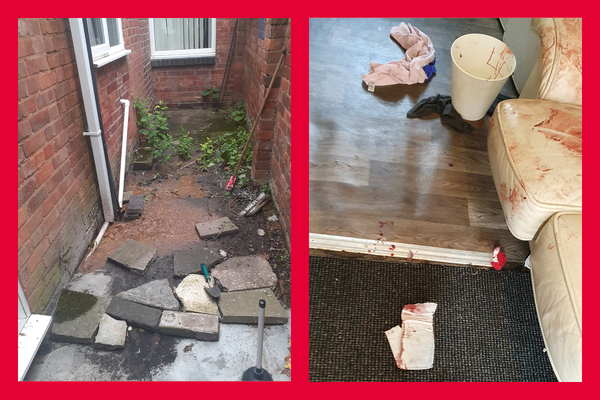Prospect has now closed down after a new management team took over, while new leadership at New Roots withdrew from the sector and voluntarily de-registered as a housing association.
The new management of New Roots had the most stinging assessment of the model, with its chair Andy Howell labeling the lease-based model “intrinsically unsafe”.
Another large provider, Green Park, was also forced to close after having its exempt accommodation status stripped by Birmingham City Council.
But the exit of three major players has not led to a drop in exempt numbers.
This is because once a provider shuts down, the managing agents, more often than not, just move under another provider. This has concentrated the stock between fewer providers.
Now 13,565 claimants, 64% of the 21,179 claimants, are housed by just three providers: Ash Shahada, Concept and Reliance.
All three providers started life outside of Birmingham, but moved to the city ahead of the exempt boom.
There is no suggestion of malpractice against the specific providers above and we have no reason to believe the accommodation they provide is unacceptable.
Concept said that providing the best support to residents is its priority and that its board decided to suspend plans for further growth until it was assured that any future growth could be managed appropriately. Ash Shahada has been contacted.
The biggest is Reliance Social Housing CIC, which is the lead provider for 8,034 claimants, more than a third of all bedspaces.
This is remarkable growth for an organization that was a dormant association based in Gravesend, Kent, just a few years ago, and only secured its first supported housing scheme in August 2018.
An investigation by The Independent and Open Democracy found that it had been paid £161m in housing benefit in the past four years.
As it has grown, it has not escaped the gaze of the regulator and local politicians. In October 2021, it was deemed non-compliant with the RSH’s Governance and Financial Viability Standard, with the RSH saying it had not been able to demonstrate that it is managing its affairs with an appropriate degree of skill, independence, diligence, effectiveness, prudence and foresight.
“I’ve felt like a complete prisoner in my own house at times”
Last month, Sharon Thompson, Birmingham’s cabinet head of housing and a councilor in North Edgbaston, wrote to Reliance raising concerns about the conditions of some of its properties, saying she had seen photographic evidence showing some “shocking living conditions, as well as a lack of support”.
Reliance told Inside Housing that it was working with the council and the regulator to ensure the quality of service and support is meeting the required standards, and that it had implemented a robust action plan to ensure it is fulfilling strategic objectives and regulatory compliance.
It also criticized Ms Thompson’s decision to publish her letter without contacting Reliance, and added that as an organization, it will continue to prioritize the welfare of tenants, and regularly review and seek to enhance its complaints procedures.
Many EA properties are good quality, providing essential support and a roof over the heads of thousands of people who would not otherwise have this.
“There are a lot of really good providers across the city, where they absolutely provide good levels of support,” says Preet Gill, MP for Edgbaston.
However, Ms Gill, who last year carried out a series of unannounced visits to exempt hostels in her constitution, says she believes that in too many cases, providers are not doing this and conditions are sub-standard.
Inside Housing has spoken to a number of exempt accommodation residents who have described some of the situations they have had to endure.
These ranged from damp problems and pest infestations, to space issues, with landlords putting up partition walls in already small bedrooms to squeeze in additional bedrooms.
Another consistent complaint was not being provided with basic amenities.
This includes tenants who had gone months without internet, electricity and gas, even in the colder winter months.
Inside Housing spoke to one resident who suffers from a condition that affects his mobility and sometimes has to use a walking stick or a wheelchair. He has lived in three exempt properties, none of which have been adapted to help him. In the current one, his bedroom is at the top of a flight of stairs. “I’ve felt like a complete prisoner in my own house at times,” he says.
There are also significant repairs issues on many properties.
In one case Inside Housing was told about, a broken waste pipe left human waste collecting in a back garden during the recent heatwave.




